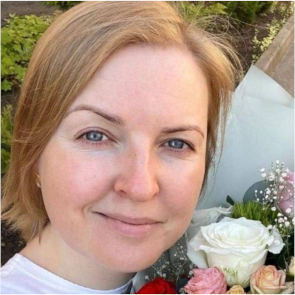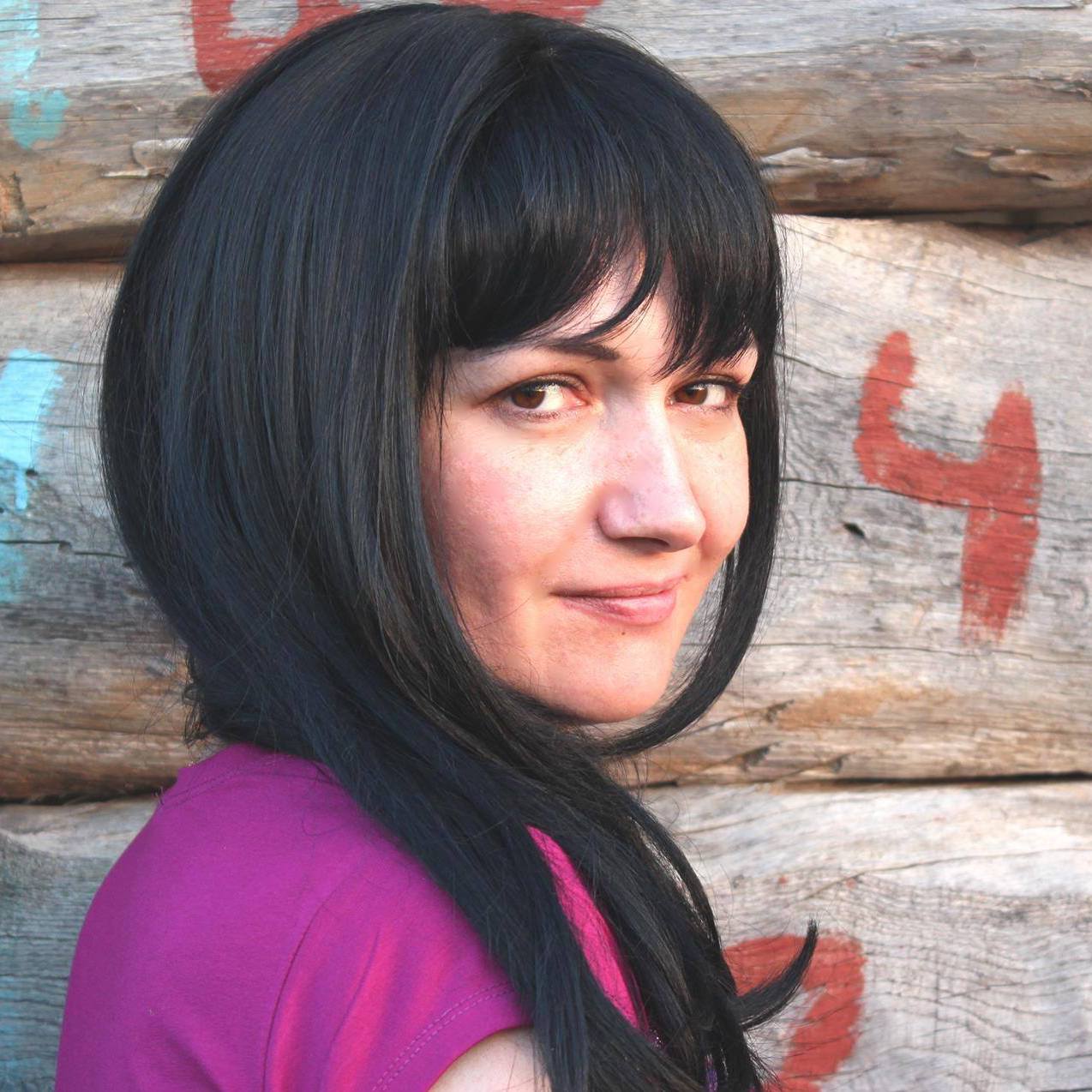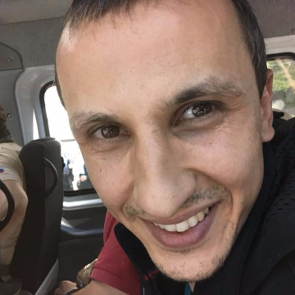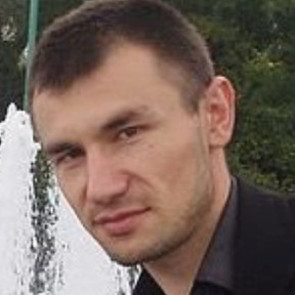Denial of medical care to Ukrainian human rights defenders illegally detained in Russia and Russian-occupied territories
Front Line Defenders, Human Rights Watch and Physicians for Human Rights are deeply concerned about the denial of adequate medical care to Ukrainian human rights defenders illegally detained in the Russian Federation and Russian-occupied territories of Ukraine.
Ukrainian human rights defender and civic journalist Iryna Danylovych was forcibly disappeared in Russian-occupied Crimea on 29 April 2022 by occupying law enforcement. Her whereabouts remained unknown for 13 days until her attorney located her in the pre-detention centre in Simferopol on 11 May 2022, prosecuted on fabricated charges of terrorism. Eventually on 28 December 2022, the Feodosia City Court sentenced Iryna Danylovych to 7 years of prison. Human rights defender has had a chronic ear infection (otitis) since November 2022 which she had contracted in the pre-trial detention centre in Simferopol. She reportedly suffers from constant pain and hearing loss, recurring headaches and loss of coordination, but the centre’s administration has repeatedly refused adequately to treat these conditions while she was in their custody.
Between 22 March and 6 April 2023, Iryna Danylovych went on a “dry” hunger strike, refusing food and water, to protest the penitentiary authorities’ refusal to provide her with adequate medical assistance. Finally the authorities agreed to allow a medical examination, which took place the week of April 10, but according to her father, Bronislav Danylovych, who was able to communicate with her, it did not include appropriate diagnostic tests and medical treatment.
Despite the precarious state of her health, after her appeal hearing Iryna Danylovych was first transferred to a penal colony in Krasnodar, Russia, and from there to a penal colony in Zelenokumsk in the Stavropol Region of Russia, more than 900 kilometres from Crimea.
Bronislav Danylovych reported that a doctor in the Zelenokumsk penal colony, responding to his daughter’s complaints of pain and dizziness, stated that “the pain will go away when she goes deaf.” Moreover, as he reported, the medications she had with her were confiscated by the administration of the penal colony.
On October 26, 2023, Bronislav Danylovych reported that his daughter was taken to a local hospital, but no one there conducted medical examination: the doctor only copied the information from her medical record.
The penitentiary’s failure to provide Iryna Danylovych with appropriate medical care while in detention contravenes the 1955 Standard Minimum Rules for the Treatment of Prisoners known as the Nelson Mandela Rules, but is a violation of the prohibition on inhuman and degrading treatment, and her right to personal integrity and to health.
Her family fears that lack of timely medical treatment for her ear infection may cause the infection to spread to her central nervous system and brain, with potentially life-threatening consequences. Physician specialists affiliated with Physicians for Human Rights (PHR) analysed Danylovych’s medical records provided by the penitentiary administration and noted the description of a brain MRI that showed a lesion in the "cerebral white matter" with probable vascular etiology. The medical records did not include any indication as to whether further diagnostic testing was ordered or conducted to determine the cause of the lesion.Specifically, there was no report of blood tests (CBC, lipids, blood glucose, coagulation studies, antinuclear factor, and other coagulation studies), holter monitoring, echocardiogram and imaging of cervical blood vessels, which physicians reviewing her medical record suggest would have been prudent.
On 21 June 2023, Crimean Tatar human rights defender Emir-Usein Kuku was urgently transferred to hospital from a detention facility in Salavat, Russia, with acute abdominal pain. Emir-Usein Kuku, Chairperson of the Crimean Contact Group on Human Rights in Yalta and a member of the Crimean Human Rights Movement, is currently serving a politically motivated 12-year prison sentence. His wife, Mariem, attempted to contact the administration of the facility, but received no response. Only the Russian Public Oversight Commission in Bashkortostan confirmed that the human rights defender had been hospitalised and underwent intestinal surgery.
On 10 July 2023, the human rights defender was returned to prison from the hospital without receiving proper rehabilitation after the surgery. His wife is concerned that his condition will worsen, as he is not receiving regular medical examinations and is not able to follow a proper diet in prison after his surgery.
Prior to that, Emir-Usein Kuku’s health condition had been steadily deteriorating, due to detention conditions, as well as a 2018 hunger strike the human rights defender underwent. When Kuku’s family learned of his latest hospitalisation, they initially believed that it was in relation to an exacerbation of his kidney disease after reportedly being beaten by Russian law enforcement officers in 2015. Then they were informed that it was a disease of the digestive system, but they were not provided with details.
The health of another detained human rights defender, Server Mustafayev, has also deteriorated. Server Mustafayev is a Crimean Tatar human rights defender and the coordinator of Crimean Solidarity, a human rights movement created after the occupation of the Crimean Peninsula by the Russian Federation to monitor human rights violations. According to his wife, Meye Mustafayeva, Mustafayev has been suffering from chest pain and breathing difficulties for more than a year. However, neither the administration of the pre-trial detention centre in Ufa, Russia, where he was previously held, nor the administration of the penal colony in Tambov, Russia, where he is currently held, have allowed him to undergo a cardiology examination.
Meye Mustafayeva has also reported that her husband has problems with his knee joints, his eyesight has deteriorated and he has developed a benign tumour (lipoma). She attributed this to the poor detention conditions and hard labour in the penitentiary institutions in Russia where he is being held. Server Mustafayev filed an administrative lawsuit against penitentiary administration in relation to the denial of medical care in the Novocherkassk pre-trial detention centre where he was held when the tumour was discovered.
Iryna Horobtsova, a humanitarian volunteer and human rights defender from Kherson, was abducted on 13 May 2022 from her parents' home by Russian occupying forces and is being held, according to her relatives, in a detention centre in Russian-occupied Simferopol, on the Crimean peninsula. No formal charges have been brought against her. Her family members reported that they were not allowed to pass anything to her, including the medicines she was prescribed to take, and her lawyer continues to be denied access to his client and to any information about her detention conditions and health.
Her family continues to have concerns, based on Horobtsova’s brain aneurysm, which pre-dated her abduction and which requires that her health condition be closely monitored. According to the human rights defender's sister, Iryna has suffered from severe headaches and her doctors linked them to the aneurysm.
There are also concerns about her psychological state, as Human Rights Watch reported in April 2023 that she has been subjected to threats and pressure from Russian security forces and held in solitary confinement for a prolonged period.
On 14 August 2023, the Ukrainian human rights organisation ZMINA published a list of 21 Ukrainian political prisoners held by the Russian authorities whose health and possibly lives are in danger due to being denied access to medical care in the penitentiary facilities in which they are held. This list includes three Ukrainian human rights defenders from Crimea.
Under international law the prohibition of torture or other cruel, inhuman or degrading treatment or punishment is absolute. This prohibition is explicitly set out in article 5 the Universal Declaration of Human Rights (UDHR), as well as article 7 of the InternationalCovenant on Civil and Political Rights (ICCPR) , and articles 1, 2, 15 and 16 of the United Nations Convention against Torture and Other Cruel, Inhuman and Degrading Treatment or Punishment (CAT). Russia has ratified both treaties.
The Fourth Geneva Convention which governs protection of civilians during occupation, explicitly prohibits ill-treatment of civilians (article 32), and in the event they are convicted and serving a sentence, in article 76, provides that they should serve the sentence in the occupied territory (Crimea), if possible be separated from other detainees, and shall enjoy conditions of food and hygiene which will be sufficient to keep them in good health, and receive the medical attention required by their state of health.
Front Line Defenders, Human Rights Watch and Physicians for Human Rights strongly condemn the denial of adequate medical care to human rights defenders in captivity in Russia and Russian-occupied territories and urge the authorities of the Russian Federation to:
- Immediately and unconditionally release all human rights defenders who were subjected to enforced disappearance or unlawful detention by the de-facto authorities in the Russian-occupied territories of Ukraine.
- In line with their duty of care under international law, take all necessary measures to ensure that human rights defenders under the de-facto control of the Russian authorities have access to adequate medical care, and that their physical and psychological security and integrity are guaranteed.
- Provide independent monitors unimpeded access to detention facilities under the control of the Russian Federation, so they can verify that the Russian Federation is complying with its international human rights and humanitarian law obligations.




